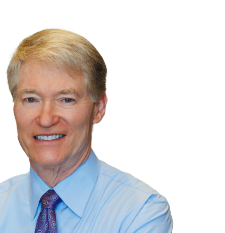Who tells the doctor that it’s time to retire? That’s a very good question, the answer to which in today’s United States is, “No One!” How does it work in the rest of our society? Some professions have mandatory retirement ages. For instance, airline pilots must retire at age 65, air traffic controllers at age 57, and certain states impose retirement at age 70 for judges. On the other hand, in Australia it is unlawful to force retirement, except in the case of federal judges at age 70. It’s the same in Canada with there being no compulsory retirement age, except in the cases of judges and certain federal employees.
A recent article in the March 2014 edition of Plastic Surgery News examined this issue. In the general population, 20 to 30% of people have mild cognitive impairment by age 70. Although it’s mild, most people would not want to go to a surgeon with any degree of impairment. Add to that the fact that ½ of all plastic surgeons and 1/3 of all surgeons are above the age of 55, and you have an interesting situation!
On the other hand, consider the benefit that experience conveys on a person’s job performance. Sully Sullenberger, the pilot of the US Airways flight who safely landed his plane in the Hudson River after losing all engine power after takeoff, was 58. Had a younger and less experienced pilot been at the helm, their encyclopedic factual knowledge and cat-like reflexes would have probably been for naught. In fact, subsequent flight simulations of the exact situation that Sullenberger faced ended in crashes when the pilots tried to return to one of the nearby airports. It was Sullenberger’s experience, skill, and judgment that allowed him to make the decision to land in the Hudson and do so safely. That ability comes with time, and time comes with age!
There is also the case of Dr. Charles Wilson, famed San Francisco neurosurgeon and chairman of the Department of Neurosurgery at UC San Francisco. At the age of 69 Dr. Wilson was operating at a skill level that far exceeded his younger colleagues. His “feats of daring-do” often left these colleagues speechless and vastly impressed. Perhaps Dr. Wilson’s fine motor skills were not quite as sharp as they were at age 30, but his experiential knowledge and mastery of surgical techniques more than compensated.
But for all of these positive reports, there are also those aging surgeons whose surgical results include some decidedly negative outcomes. Almost every hospital has its story of a surgeon who has not kept up with the times, and is/was performing outdated and more dangerous procedures than younger colleagues. Sometimes the surgical results are disastrous. One such story is that of an 80 year old surgeon who did a full day of surgery on a Friday and then left town for the weekend, forgetting that he was on call. One of his patients suffered a pulmonary embolus and died!
Why don’t surgeons retire? For many, it’s enjoyment of the profession. For others there may not be an attractive alternative – they fear that boredom awaits them upon retirement. Others may need the money that comes with from a surgical practice.
Wouldn’t they retire if they realized that they were physically or mentally impaired? The answer, according to experts, is that those with the most impairment are also those that are the least effective at self-assessment. Cognitive changes and physical impairment may occur slowly over time, and the person affected may simply get used to the changes, not even noticing their presence.
So what is the correct answer – no retirement limits, mandatory retirement limits, or wise limits?
– “No limits” is where we are now. Does that need to be changed? Is there really a problem with many doctors practicing while age-impaired? Show me the evidence. If not, I would suggest that, “Unless it’s broke, don’t fix it.”
– “Mandatory limits” ignores the fact that many physicians who are aging continue to practice medicine at the same or higher level as their younger peers. I personally would choose an older physician over a younger one in many cases! No mandatory limits, please!
– “Wise limits” – If there proves to be a problem with doctors who unwisely practice beyond their years, and I say it needs to be proven, why not test doctors for physical and cognitive abilities every 4 to 5 years, after they reach the age of 50? This testing could be implemented as a requirement for renewal of a medical license. It would take 2 to 3 hours and cost a maximum of $500, according to an expert who runs such a program at UC-San Diego.
What do you think?
George Sanders, M.D.





